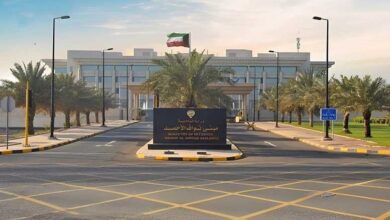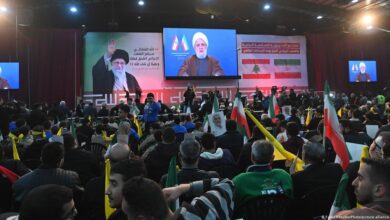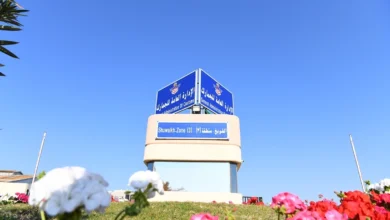EU-GCC Strategic Partnership aims to address regional global issues
A relationship built on common aims and goals
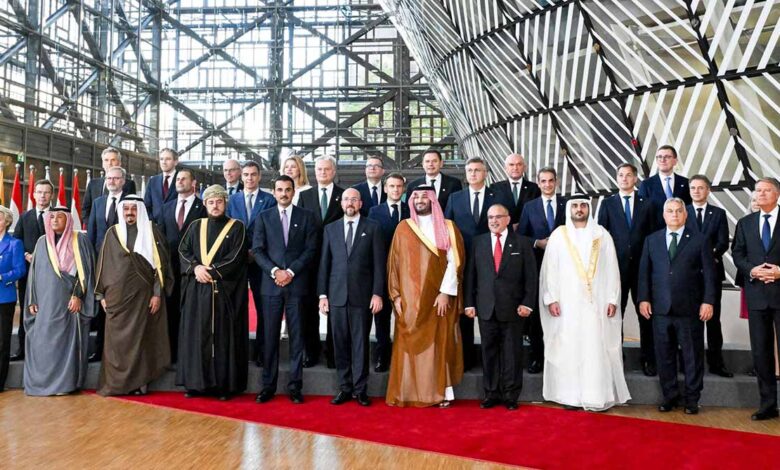
By Tareq Yousef AlShumaimry
The six Gulf Cooperation Council (GCC) states and the 28-nation European Union (EU) bloc neither share geographic proximity nor cultural affinity, but what they do have in common are similar viewpoints on many global issues, as well as a strategic interest to redefine their relationship. The EU-GCC Summit held last week was an opportunity to build on existing relations and develop prudent measures to effectively address regional and international challenges.
The genesis of both blocs owe a lot to economic and political compulsions prevailing at the time of their formation. The origin of GCC in 1981, while helping to institutionalize kin relationships and religious and cultural ties shared by people in the region for centuries, also stemmed from the need to collectively respond to the common security and economic challenges. The GCC Charter reflects this need, as it calls for unity, coordination and integration among member states in all fields.
The EU for its part was established in 1992 through the Maastricht Treaty following the disunion of the former Soviet Union, the fall of the Iron Curtain, and the unification of the two Germanies. Although predecessors to the EU pursued different objectives, the EU in its current form was the first to seek social, political and economic integration and harmony among the growing number of member states.
Economic and geopolitical factors have today pushed the two disparate blocs together. A cooperation agreement signed in 1989 between the GCC and the European Economic Community (EEC)—the immediate predecessor of the EU—led to regular dialogue between the two sides on various issues, including common global challenges, economic cooperation, sustainability, climate change, energy, and people-to-people initiatives. To further advance their cooperation, in May 2022 the European Commission and the EU High Representative issued a joint communication on a ‘Strategic Partnership with the Gulf’. The communique outlined an operational roadmap for the EU to develop closer ties with the GCC member states.
In a joint statement issued at the end of the summit, EU and GCC leaders stressed the desire of the two blocs to build their Strategic Partnership, based on mutual respect and trust, for the benefit of people in the two regions and beyond. The statement noted that the partnership is anchored on the international rules-based order that fully respects international law, including the United Nations (UN) Charter, international humanitarian law, and the promotion and protection of universal human rights.
The two sides agreed to work together to promote global and regional security and prosperity, including preventing the emergence and escalation of conflicts, and resolving crises. Additionally, they acknowledged the need to foster multilateral, regional, bilateral frameworks with a view to further strengthen cooperation. The statement also called for holding a summit every two years, and agreed to hold the next Summit in Saudi Arabia in 2026, and to organize the 29th Joint Council and Ministerial Meeting in Kuwait in 2025.
To push forward sustainable prosperity and security, the two blocs also consented to boost trade, investment, and cooperation; enhance energy cooperation and the fight against climate change; strengthen connectivity between the two regions; and to step up engagement on development and humanitarian aid. The statement also called for reinforcing joint efforts to address key global issues, and to build bridges between peoples of the two regions.
To support long-lasting stability and peace in the two regions and globally, the two sides reaffirmed their respect for the sovereignty and territorial integrity of States, and called on all states to refrain from threats or use of force to seek territorial acquisition against the territorial integrity and sovereignty or political independence of any state.
In line with the various resolutions adopted at the UN General Assembly, the statement underscored the need to reach, as soon as possible, a comprehensive, just and lasting peace in Ukraine in line with the principles of the Charter of the United Nations. The document also reaffirmed the commitment of the two sides to the sovereignty, independence, unity and territorial integrity of Ukraine.
On ongoing conflicts in the Middle East, the two sides expressed utmost concern over developments in Israel, Gaza and the West Bank, and called for an immediate and complete ceasefire, release of hostages, exchange of Palestinian prisoners, as well as immediate and unimpeded humanitarian access and assistance throughout the Gaza Strip to all Palestinian civilians.
The statement reaffirmed unwavering commitment to the realization of the right of the Palestinian people to self-determination through the Two-State solution where Israel and Palestine live side by side in peace within secure and recognized borders, along the 1967 lines, consistent with international law and relevant UN resolutions and the 2002 Arab Peace Initiative.
On Lebanon, the document stated its extreme concern over the escalation and affirmed support for the Lebanese people. The two sides called for an immediate ceasefire and to intensify international and regional efforts to provide urgent humanitarian aid to Lebanon to alleviate the suffering of civilians and protect them from any war repercussions. The statement also insisted on restoring the Lebanese government’s authority over the country and implementing economic reforms.
On Iran, the document emphasized the importance of adherence to international law, including the UN Charter. In this respect, the statement called on Iran to end its occupation of the three islands of the United Arab Emirates, Greater Tunb, Lesser Tunb, and Abu Musa, which constitutes a violation of the sovereignty of the UAE. The statement also stressed the importance of ensuring the peaceful nature of the Iranian nuclear program, and called on Iran to pursue regional de-escalation.
Turning to Iraq, the joint statement called for the complete demarcation of the Kuwait-Iraq maritime boundary and stressed the importance of full implementation of the 2012 Kuwait-Iraq Agreement to regulate maritime navigation in Khor Abdullah. The document also renewed support for UNSC Resolution 2107, which instructed relevant UN entities to enhance efforts regarding the repatriation of all Kuwaitis and third country nationals, including missing persons or their remains, and return Kuwaiti property, including national archives.
While there was skepticism among political analysts about the pragmatic results that could be achieved from the summit, the joint statement makes clear the deep understanding on both sides that a strategic partnership is vital to advance mutual interests and address existing and future global challenges.
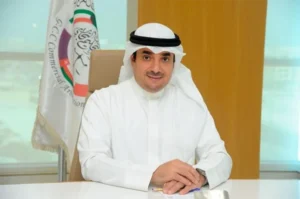
Tareq Yousef AlShumaimry, served as Chairman of the Finance Committee and Chairman of the General Budget Committee of the Permanent Court of Arbitration in The Hague (PCA) and an observer in the Administrative Council of the Court and the Consular at International Court of Justice (ICJ) and the Embassy of the State of Kuwait in the Netherlands during this period from 2013 to 2020. Email: tareq@alshumaimry.com










